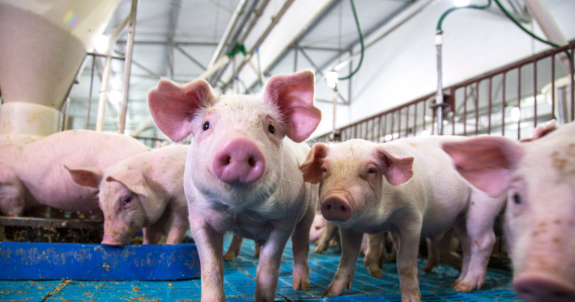The Ontario government recently introduced Bill 171, the Enhancing Professional Care for Animals Act. Overall, while the bill promises to improve veterinary standards and enhance professional accountability, it unfortunately overlooks critical issues affecting farmed animals.
Bill 171 has many strengths, such as a quality assurance program for the College of Veterinarians of Ontario (which regulates the profession), aiming to ensure higher standards within veterinary practices. It establishes a more comprehensive framework for vet licensing, detailed procedures for applications, terminations, and license hearings—which is helpful, given frequent public complaints about a lack of accountability for veterinarians credibly accused of misconduct. It also requires veterinarians to report professional misconduct and incompetence if they witness it among colleagues, which enhances transparency and accountability. The bill also ensures veterinary technicians are covered by professional standards.
Failing Farmed Animals
However, the bill also has some critical shortcomings. It permits farm owners and operators to continue performing invasive and painful procedures on animals—practices that should normally only be done by qualified veterinary professionals. This exemption mainly benefits large-scale industrial farms, allowing even untrained, entry-level farm workers to carry out painful mutilations and other procedures, such as castration and dehorning. This is deeply troubling. Undercover investigations have shown that these mutilations often take place without adequate oversight or pain management.
The bill fails to protect farmed animals from standard agricultural practices known to cause significant distress, such as tail docking, inhumane killing methods like “thumping” or gas chambers, and the killing of animals for fur or unwanted chicks through live maceration or decapitation.
The horror of these mutilations was exposed in an undercover investigation conducted by Animal Justice in 2020 at Paragon, an Ontario pig farm. Workers performed egregious acts like slicing off piglets’ tails and castrating them without pain relief, alongside botched procedures that caused severe injuries. Such horrors, including an illegal c-section performed on a conscious pig, underscore the dire need for oversight and reform.
Although Bill 171 makes strides in regulating veterinary practices, it unfortunately fails to extend its protective reach to the most vulnerable—farmed animals subjected to routine suffering. Animal Justice is calling for the bill to be amended to restrict painful procedures to trained and regulated professionals only, ensuring that farmed animals aren’t subjected to some of the worst and most painful mutilations.




